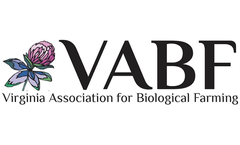Ecocert Articles & Analysis
12 articles found
Citrus greening, more widely recognized as Huanglongbing (HLB), is caused by the bacterium Candidatus Liberibacter asiaticus, has emerged as one of the most destructive threats to citrus production worldwide. Since 2019, this disease has ravaged citrus industries worldwide, destroying approximately 75% of orange and 85% of grapefruit production in affected regions. It severely stunts tree ...
At Fa. Bisschops we grow Dahlia bulbs, among other things. And we have been doing so with great care and attention for ...
We We are partnering with Southern Piedmont organic and conventional diverse vegetable farmers through an enhanced incentives program. Farmers will be asked to add cover crops to their vegetable rotation. We will monitor greenhouse gas emissions, soil health benefits, economic impacts, and social barriers to the adoption of using cover crops versus not using cover crops on their fields. This ...
Cotton in numbers and why they matter Every year 27 million tons of cotton is produced globally and it is also the most often used natural fibre according to Statista. The WWF reports cotton production employs almost 7% of all labour in developing countries and provides income for over 250 million people worldwide. They also raise the concerns of the industry’s environmentally ...
If Sierra Leone is now a leading producer of palm oil, it is because the oil palm grows abundantly in the tropical climate of West Africa. And yet, despite its 24,000 hectares of oil palm and 185,000 farmers owning palms, palm oil is still being imported to meet all the country’s needs. One of the main reasons for this situation is that the country is still recovering after a long civil war ...
The USDA recommendation also includes banning aquaponics and aeroponics. The proposal would allow for some types of container production systemsthat meet the nitrogen formulas provided by the Crops Subcommittee. Aquaponics is being defined as a recirculating hydroponic plant production system in which plants are grown in nutrients originating from aquatic animal wastewater. Aeroponics is ...
However, insofar as their action is limited to removing air pollutants and they do not come into contact with the foodstuffs, their use does not conflict with compliance with the above-mentioned regulations and they are therefore considered as: "A product suitable for use in organic agriculture according to the EC 834/2007 and NOP regulations” This statement can be included in the ...
Most European consumers are against the use of genetically modified organisms (GMOs) products. Nevertheless, the European Union (EU) does not set particular limits to GMOs intake while it is restrictive with regard to GMOs farming. As consequence nine Member States, including France, Italy and Germany, have adopted measures to forbid GMOs farming on their land. Worldwide, the EU is the main ...
Honeybee waggle dancers are helping researchers identify conservation best practices. The question scientists at the University of Sussex in the U.K. had was simple: Where do honeybees find food? But finding a way to answer that simple question seemed not so simple. Tiny radio or GPS trackers have a limited range, and it would take huge amount of work to survey fields on foot. Instead, ...
ByEnsia
This paper seeks to analyse ecological modernisation using a focus on how bureaucracy contributes to constituting ecological modernities in the case of organic food trade in the UK and India. Ecological modernisation is a way for business to apply ecological technologies to satisfy the demands of increasingly affluent publics for higher quality of life, including high environmental standards. ...
Poor condition of Polish agriculture, clean soil environment and extensive methods of production make Poland particularly suitable for developing environmentally friendly forms of farming. In the last decade the number of people who have decided to convert from old, conventional farms to new, environmentally friendly ones, has markedly increased. The objective of this study was to find out what ...
This article is about the responses the organic movement makes to various pressures on the alterity of farmers' markets (FMs) in Ireland. These pressures are the increasing distance food travels to the FM, availablity of processed foods, disconnected vendors and produce, appropriation, market forces and evaluations and finally policy pressures. However, the research presented here suggests that ...









